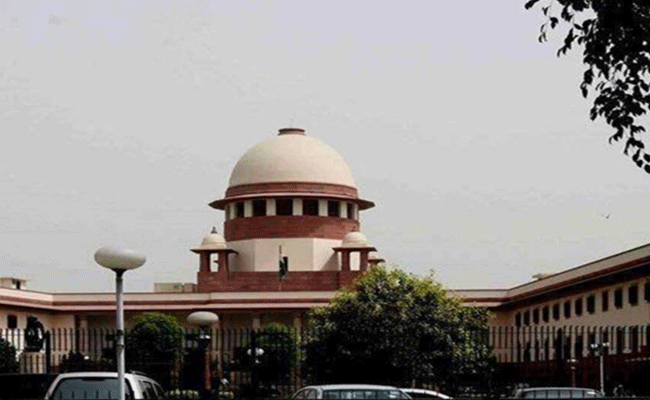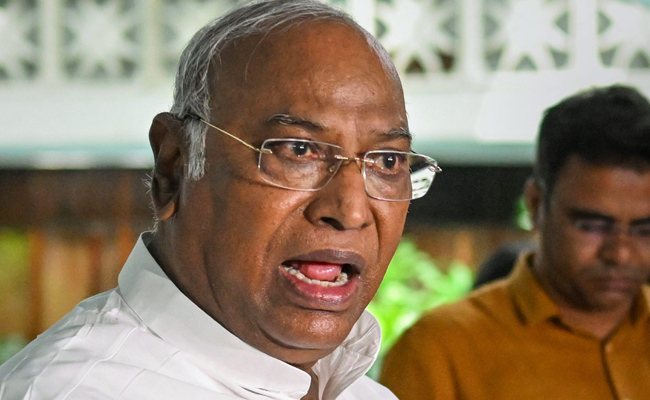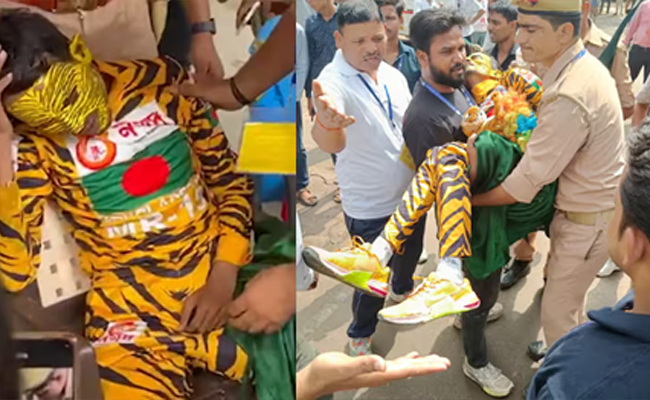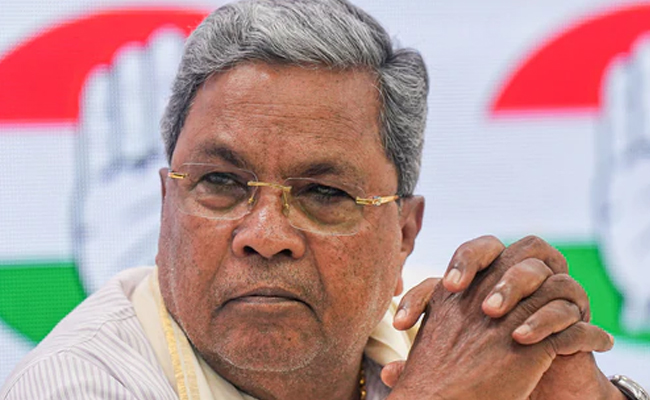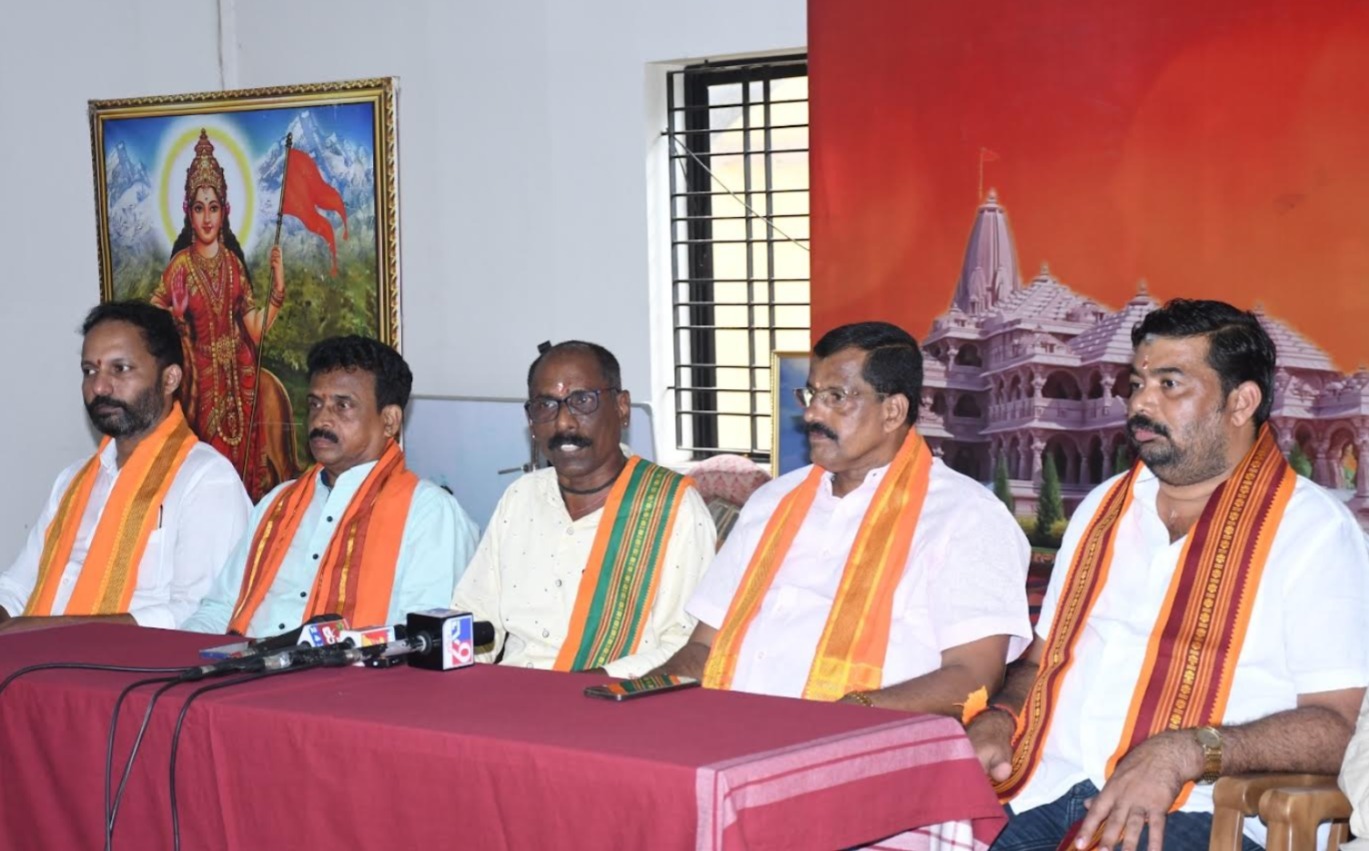New Delhi (PTI): The Supreme Court will hear on April 5 a batch of PILs challenging the validity of certain provisions of a 1991 law that prohibits filing of a lawsuit to reclaim a place of worship or seek a change in its character from what prevailed on August 15, 1947.
A bench comprising Chief Justice DY Chandrachud and justices PS Narasimha and J B Pardiwala on Monday took note of submissions of lawyer Ashwini Upadhyay, one of the PIL petitioners, that the matters, which are listed for hearing on April 5 in the cause list, be not deleted from the list of business on that day.
"It will not be deleted on that day," the bench said.
On January 9, the top court had asked the central government to file its reply to the PILs against some provisions of the Places of Worship (Special Provisions) Act, 1991, and had granted it time till the end of February to submit its response.
The top court has listed for hearing on April 5 as many as six petitions, including one filed by former Rajya Sabha MP Subramanian Swamy, against the provisions of the law.
On November 14 last year, Solicitor General Tushar Mehta, appearing for the Centre, had said a comprehensive affidavit will be filed by the government dealing with various facets of the case and sought some more time to ensure that the affidavit is filed after due deliberation at various levels of the government.
"On the request so made, we direct that the counter affidavit be filed on or before 12 December 2022. A copy of the counter affidavit shall be circulated to the counsel for the petitioners and intervenors in all the companion matters. List the petitions on 9 January 2023," the bench had ordered on the last date of hearing.
The top court was hearing the pleas, including the one filed by Upadhyay, who has prayed that sections 2, 3, 4 of the Places of Worship (Special Provisions) Act, 1991, be set aside on grounds, including that these provisions take away the right of judicial remedy to reclaim a place of worship of any person or a religious group.
While hearing the matter on September 9 last year, the apex court had said the pleas challenging the validity of certain provisions of the 1991 law can be referred to a five-judge Constitution bench for adjudication and asked the Centre to file a reply.
While Swamy wanted the apex court to "read down" certain provisions to enable Hindus to stake claim over the Gyanvapi Mosque in Varanasi and the Shahi Idgah Mosque in Mathura, Upadhyay claimed the entire statute was unconstitutional and no question of reading down arises.
The doctrine of reading down a law is generally used to save a statute from being struck down on account of its unconstitutionality.
The Jamiat Ulama-i-Hind, represented by advocate Ejaz Maqbool, had referred to the five-judge Constitution bench judgment in the Ram Janmabhoomi-Babri Masjid title case and said the Places of Worship (Special Provisions) Act, 1991, has been referred to there and it cannot be set aside now.
The top court had on March 12 last year sought the Centre's response to the plea filed by Upadhyay challenging the validity of certain provisions of the law which provides for maintaining status quo on the ownership and character of religious places as on August 15, 1947.
The petition alleged that the 1991 law creates an "arbitrary and irrational retrospective cut-off date" of August 15, 1947, for maintaining the character of the places of worship or pilgrimage against encroachment done by "fundamentalist-barbaric invaders and law-breakers".
The 1991 law prohibits conversion of any place of worship and to provide for the maintenance of the religious character of any place of worship as it existed on August 15, 1947, and for matters connected therewith or incidental thereto.
The law had made only one exception -- on the dispute pertaining to the Ram Janmabhoomi-Babri Masjid in Ayodhya.
Let the Truth be known. If you read VB and like VB, please be a VB Supporter and Help us deliver the Truth to one and all.
Bengaluru (PTI): Congress President M Mallikarjun Kharge on Friday said the party is standing with Karnataka Chief Minister Siddaramaiah and will support him as he faces a probe by Lokayukta police in the Mysuru Urban Development Authority (MUDA) site allotment case.
Rejecting BJP's demand for Siddaramaiah's resignation, he noted that "neither a chargesheet is filed, nor he is convicted," and said, "let the law take its own course, and when a situation comes, the party will examine."
"When the Godhra incident happened, whether (Narendra) Modi ji had resigned (as the then Gujarat CM)? Several cases were also pending against him at that time, even against Mr Shah (Union Home Minister Amit Shah)," Kharge said in response to a question on BJP questioning CM's moral right to continue, with FIR slated to be registered against him.
Speaking to reporters here, he said: "Don't target a particular person to damage his image, through him the party will also be damaged. Your (BJP) interest is to damage the Congress party, not the individual. He may be here today or may not be, the party will continue. Just to destroy the Congress party and the Congress party's base votes, they want to destroy, that is why they are doing this."
Let the law take its own course, and when a situation comes, the party will examine it at that time, he further said. "Now nothing is there, (but) every day I'm seeing that MUDA, MUDA. Crores of rupees (have been) swallowed by industrialists, Rs 16 lakh crore of their debt have been written off, and now you are taking one small issue and fighting. That too neither chargesheet is filed, nor he is convicted. Every day this is news. I'm fed up seeing all these things."
Asked whether the Congress high command will stand with the Chief Minister, even after the registering of FIR, Kharge said: "that is a hypothetical question. We are standing with him, we will support him, because he represents the party, not (an) individual."
A Special Court here on Wednesday ordered a Lokayukta police probe against Siddaramaiah in the case, setting the stage for filing of an FIR against him.
The order of the Special Court Judge, Santhosh Gajanan Bhat, came a day after the High Court upheld the sanction granted by the Governor Thaawarchand Gehlot to conduct an investigation against Siddaramaiah on the allegations of illegalities in the allotment of 14 sites to his wife B M Parvathi by MUDA.
The Special Court exclusively to deal with criminal cases related to former and elected MPs/MLAs issued the order directing the Lokayukta police in Mysuru to initiate an investigation on the complaint filed by RTI activist Snehamayi Krishna.
In the MUDA site allotment case, it is alleged that compensatory sites were allotted to Siddaramaiah's wife in an upmarket area in Mysuru, which had higher property value as compared to the location of her land which had been "acquired" by MUDA.
The MUDA had allotted plots to Parvathi under a 50:50 ratio scheme in lieu of 3.16 acres of her land, where it developed a residential layout.
Under the controversial scheme, MUDA allotted 50 per cent of developed land to the land losers in lieu of undeveloped land acquired from them for forming residential layouts.
It is alleged that Parvathi had no legal title over this 3.16 acres of land at survey number 464 of Kasare village, Kasaba hobli of Mysuru taluk.

